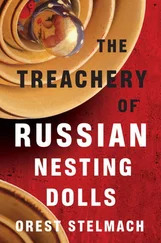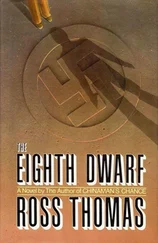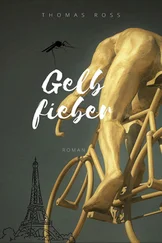Patrokis reached for his Rolodex, found a number and called it. When it was answered, he said, “Mr. Jerome Able’s room, please.”
He listened as the Mayflower Hotel operator rang the room, finally gave up, told him there was no answer and asked if he’d like to leave a message. Patrokis said he’d try again, thanked her and ended the call.
Winfield rose and reached for his hat and coat. “You didn’t really expect them to answer?”
“No, I just want them to wonder who the hell’s calling Jerome Able.”
“The Odyssean mind never rests. Well, I’m going home and to bed. I suggest you do the same.”
Patrokis glanced around the big empty VOMIT headquarters and shrugged. “I’m already home.”
Their room at the Mayflower Hotel was much like their previous room except this one was on the fourth floor instead of the fifth. Their topcoats again were on the bed. Colonel Ralph Millwed sat on the edge of it. General Walker Hudson and his rank again occupied the room’s only comfortable chair. Neither had wanted anything to drink and the General had just lighted a cigar without apology.
He blew the smoke to his left and away from Millwed before he said, “That phone call,” but didn’t bother to complete his sentence.
“It could have been a simple mistake. Some guest, direct-dialing another room, could’ve hit a four instead of a five.” There was no conviction in Millwed’s tone.
“Well, it’d be smart of Jerome Able to empty out his safe-deposit box at the Riggs Bank, cancel his VISA card and join the ranks of the disappeared.”
“Able disappears tomorrow,” the Colonel said, “replaced by Gordon C. Beale.”
“What’s the ‘C’ for?”
“Collin,” Millwed said, then asked, “How’d he sound when he called — Hank Viar?”
“Neutral. But he was born neutral and’ll stay that way as long as he’s on our payroll at — I forget how much.”
“Two thousand a month. Cash.”
“Viar claims he didn’t tell Winfield anything the old crock didn’t already know. And certainly nothing Twodees can’t tell him, if he hasn’t already.”
“Viar drinks too much,” Millwed said.
“Does he, now? But we knew that, didn’t we, when we gathered him into the fold by offering him just enough cash money to keep him in booze and happy pills? We’re his supply line now and, drunk or sober, Hank Viar’ll never endanger it.”
“I don’t trust drunks,” Millwed said. “Especially old ones. The closer they get to the end, the more they start thinking about redemption.”
“That’s your religious drunk,” the General said. “But your bedrock atheist drunk like Viar has a belief in the Great Oblivion that’s as devout as any Christian drunk’s belief in the Great Hereafter.”
“It’s your call, of course, but since you raised the question of life after death, how soon does Twodees find out if there is one?”
“The sooner the better,” the General said. “How much did Emory Kite charge us for the Captain and his wife?”
“Fifty thousand for them and twenty-five more for a rush job well done.”
“You pay him?”
“Not yet.”
“Pay him and then give him the fix on Twodees.”
“He’ll try to double his price.”
“Don’t haggle with him,” the General said. “That’s extortion.”
The General chuckled. After a moment, Millwed smiled and said, “How do you really want to handle it?”
The General examined his cigar, then put it back in his mouth, puffed a few times, drew in a large mouthful of smoke and blew four fat smoke rings at the ceiling. He watched the rings dissolve, turned to the Colonel and said, “Pay Emory some up-front money for Twodees. When he’s done the fix and comes around for the rest of his fee, we’ll have to decide what should be done about Emory himself.”
“And your nephew,” Millwed said, “out in L.A.?”
The General frowned, looked up at the ceiling and sighed.
Millicent Altford awoke after midnight in her hospital room to find a doctor bending over her. She knew he was a doctor because of the surgical mask, shirt jacket and hair cap, all pale blue, and the no-color surgical gloves he wore over hands that held a fat pillow only a foot or so from her face.
The pillow erased his medical degree and made Altford scream although it was more yell than scream. She went on yelling as she rolled over twice to her left and fell off the bed. After landing on the floor with her eyes squeezed shut, Altford continued to yell and even swear so loudly she didn’t hear the false doctor leave. She was still making a racket when someone slapped her face. Altford shut up, opened her eyes and found Liz Ball, the night nurse, kneeling beside her and wearing that half-concerned, half-irritated expression that’s taught at nursing school.
“You just slap me?” Altford asked, knowing the answer.
“Damn right,” Ball said. “You were having a nightmare and cussing your head off.come on. Let’s get you back into bed.”
“I fell out of bed?”
“Fell or jumped, you’re on the floor.”
“Maybe you ought to get that big doctor to help,” Altford said, not proud of her slyness, but unable to think of anything better.
“What big doctor?”
“Well, maybe he was just an orderly — a real big guy who sorta popped in on me.”
“White or black?”
“White.”
“We haven’t got any white orderlies on this floor,” Ball said. “Fact is, we haven’t got any orderlies at all. It’s the shift change and one orderly left early and the other one’s late. And at this time of night, we sure as hell don’t have any doctors up here, big or little, white or black. Now let’s get you back into bed.”
Using the nurse’s strength, Altford rose slowly and carefully to make sure nothing had been sprained or broken. After she was back in bed, the nurse asked if she’d like something to help her sleep.
“I’d like a big glass of ice, please, Liz. And after you get that, I’d be ever so grateful if you’d pour in one of those miniatures of gin and let it sort of percolate down?”
The nurse left Altford propped up in bed on pillows, her hands wrapped around a tumbler of iced gin. Altford had two large swallows, put the glass on the bedside table, placed the nearby telephone on her lap and tapped out a number that was answered halfway through the second ring by Edd Partain.
“How long’s it gonna take you to get over here?” she said.
Millicent Altford let Partain drive this time and noticed he was a timer who hit most of the traffic lights on the green or yellow. She liked the way he drove and also the way he listened to her tale of the failed smothering.
When Partain was sure she had finished, or at least run down, he said, “The guy waited for the shift change.”
“Obviously.”
“Would you recognize him again?”
“In a second — providing he wore a blue mask, coat, hair cap and see-through plastic gloves.”
“You said he was big. How big?”
“Six-four at least.”
“What about his eyes?”
“You mean were they the cruel eyes of some crazed proctologist who’d rather kill than cure?”
“Just their color.”
“I don’t remember.”
“Too bad,” Partain said.
“Would you remember their color if a pillow was about to cancel your breathing?”
“Yes, but that’s what I do. Or did. Notice things. Like how many fingers has Mickey Mouse got?”
“You’re asking me?”
Partain nodded.
“Three,” she said. “Because it’s easier and cheaper to draw three than four.”
“Then you do notice stuff.”
“Yeah, when guys aren’t trying to smother me.”
Читать дальше












